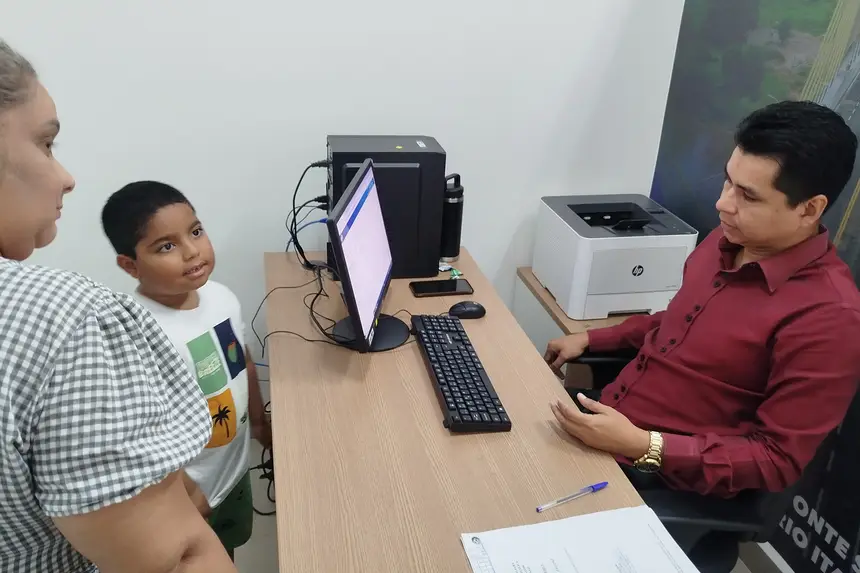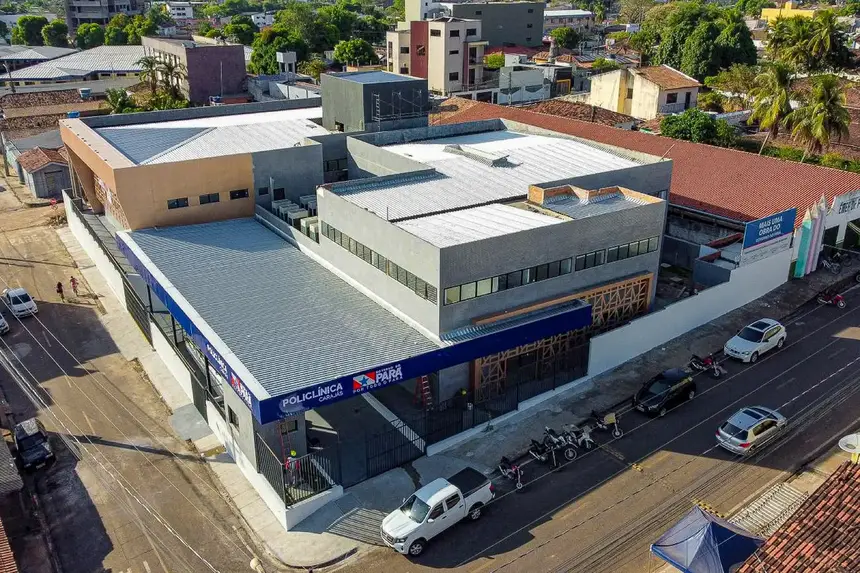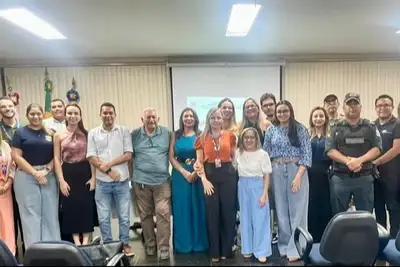Natea from Polyclinic Carajás ensures early diagnosis and comprehensive support for children with autism
The unit of the Government of Pará offers welcoming, specialized evaluation, and multiprofessional follow-up to users and their families
In Marabá, a municipality in southeastern Pará, the Autism Spectrum Disorder Care Center (Natea), linked to the Polyclinic Carajás Miguel Chamon, has become a reference for families seeking answers about their children's development. The service, offered by the Government of Pará, guarantees specialized evaluation and follow-up for children with a confirmed diagnosis or suspicion of autism, prioritizing social inclusion and quality of life.
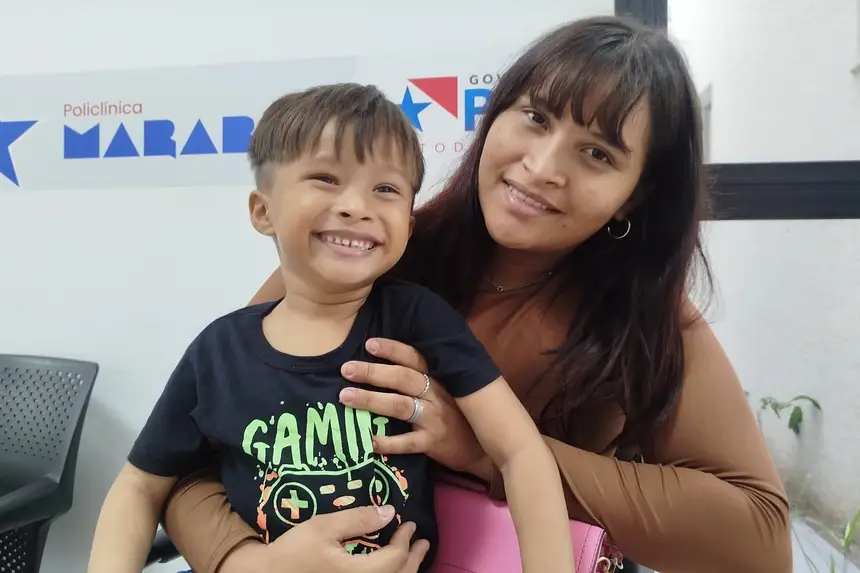
A similar situation is experienced by Adriana Sampaio, grandmother of Fabrício Sampaio, 5 years old, residents of Bom Jesus do Tocantins, also in the Carajás Integration Region. The boy shows sensitivity to noise and is undergoing diagnostic investigation. "We are still in the testing phase, but I already feel calmer. The team explains each step, treats my grandson with care, and truly listens to us. This humanized care makes a difference for those who arrive with doubts," reported Adriana.
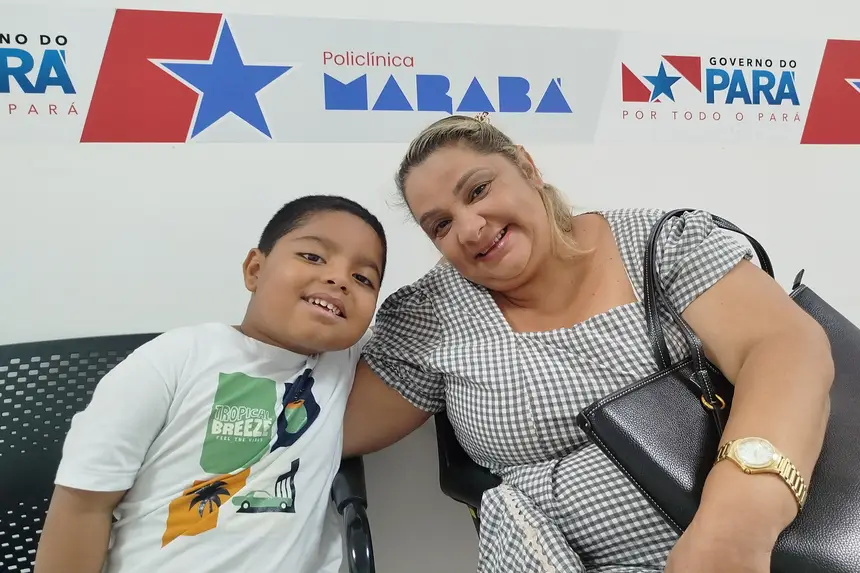
According to the World Health Organization (WHO), around 70 million people worldwide have been diagnosed with Autism Spectrum Disorder (ASD), a neurodevelopmental disorder that affects how an individual relates to the world around them.
Early diagnosis - At Natea, neuropediatrics is essential for early identification of neurological disorders in childhood and guiding the entire care process. The specialist evaluates development and observes signs such as speech delays, motor difficulties, and behavioral changes. Based on the diagnosis, personalized interventions integrated with therapies are defined.
For neuropediatrician Helder Vieira Santos, each evaluation must combine science and sensitivity. "Our goal is to look beyond the symptoms and see the potential of each child. When the diagnosis comes at the right time, we can guide the family and start the care, giving the child opportunities to develop and socially integrate," explained the specialist.
The integrated work of the multiprofessional team at Natea, managed by the Institute of Social and Environmental Health of the Amazon (ISSAA), in partnership with the State Department of Public Health (Sespa), allows for more comprehensive intervention plans that consider not only neurological development but also the emotional, social, and motor needs of the child, strengthening the bond with the family.
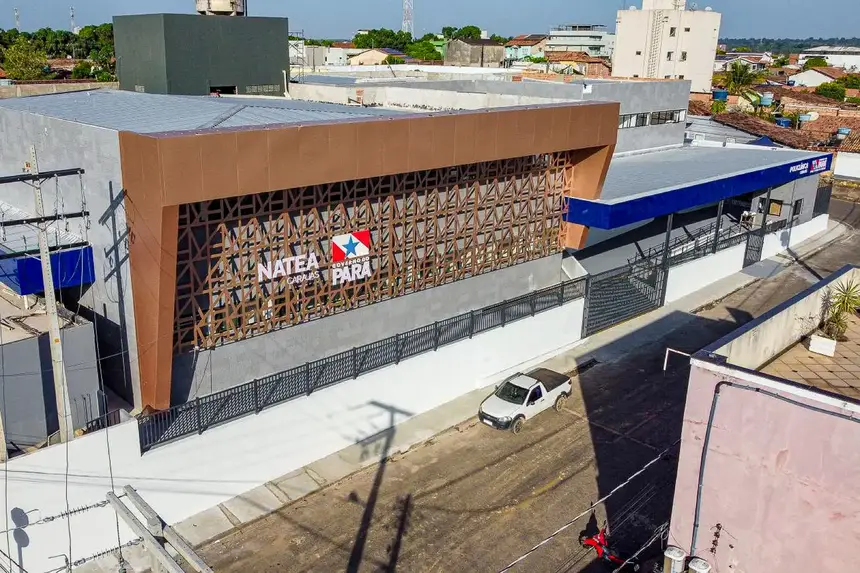
How to access the service - To access Natea's services, families must seek a Basic Health Unit (UBS) in the municipality where they reside. After the first evaluation, the case is forwarded to the Municipal Regulation Center and then to the State Regulation System (SER), which directs the patient according to the identified clinical profile.
Beatriz Barros, coordinator of Natea, explained that upon arriving at the unit, each child undergoes a thorough evaluation to identify their needs and define the best care path, ensuring guidance and continuous support to families.
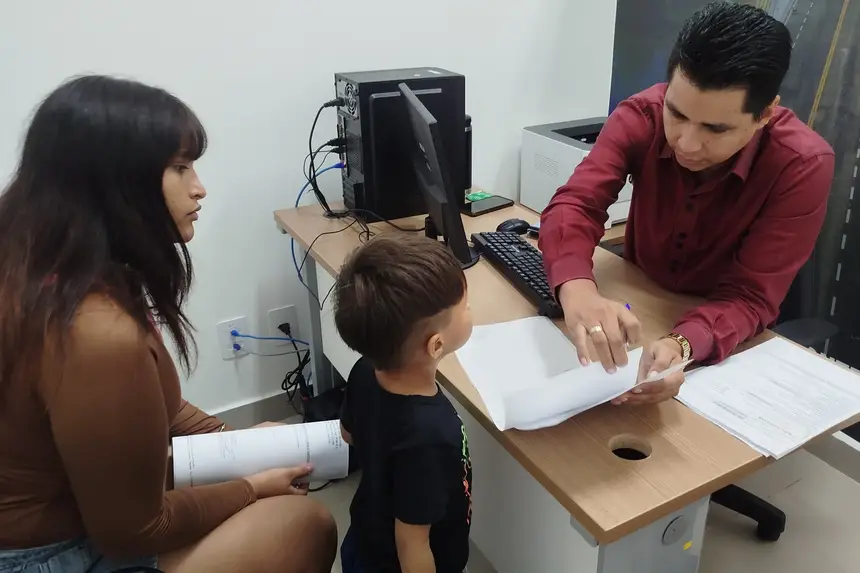
"The process is organized into four stages: diagnostic screening with pediatrics, evaluation by the multiprofessional team, development of the individual therapeutic plan, and inclusion in the intervention program, which closely monitors the evolution of the child and the family," detailed the coordinator.
The operation of Natea is based on a multiprofessional and interdisciplinary model, which reinforces the subject-centered approach, considering their cognitive, behavioral, communicative, motor, and social needs. This also facilitates the planning of interventions and the correct referral within the support network.


